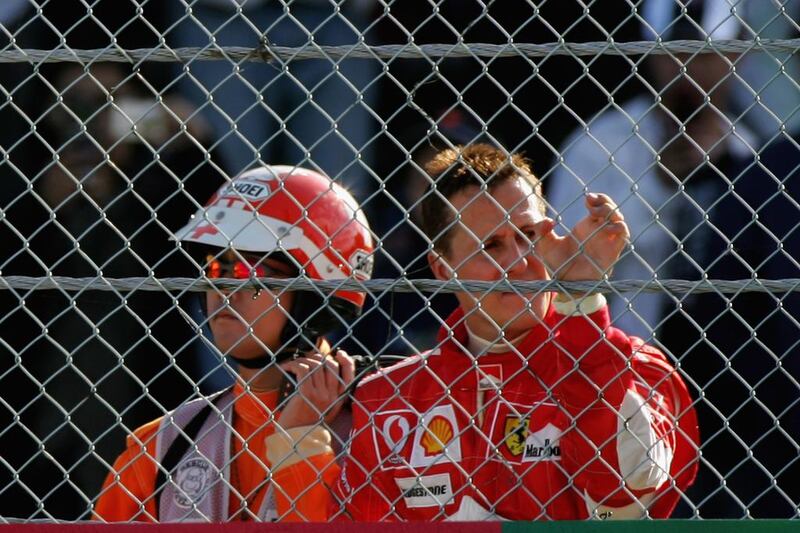Lewis Hamilton has more pole positions, has led more laps and has won as many races as Mercedes-GP teammate Nico Rosberg in 2016, yet is 12 points behind him going into the Etihad Airways Abu Dhabi Grand Prix, the final round of the Formula One season.
The triple world champion has blamed problems with car reliability for his deficit, but if he does miss out on the title on Sunday he will not be the first driver to have missed out on championship success that way.
2006
The second and last of Fernando Alonso’s two world championships to date had a degree of luck to it.
The Renault driver had trailed Michael Schumacher in the title standings with two races to go by virtue of the Ferrari driver having one more race victory.
Schumacher had led Alonso at the penultimate race in Japan, and if he had won he would have only needed second in the final race to win his eighth world title before he retired from F1.
However, his engine blew, gifting the win to Alonso, leaving the Spaniard only needing one point in Sao Paulo to be champion.
He finished second there to seal it, and while he had matched Schumacher with seven wins each, it had been the German’s late misfortune that had swung it his way.
2000
Schumacher ended Ferrari’s 21-year wait for a drivers’ championship in 2000, beating Mika Hakkinen to the title.
He won nine races that season, but he was helped by the unreliability of Hakkinen’s McLaren.
Hakkinen, the 1998 and 1999 world champion, had led the opening two races in Australia and Brazil, but mechanical problems stopped him in both races, with Schumacher the beneficiary.
Instead of having his speed rewarded, Hakkinen found himself 20-0 down to Schumacher, yet thanks to his speed, and one car problem in France and first-lap crashes in Austria and Germany for the Ferrari driver, the Finn turned things around to be two points clear with three races to go.
But an engine failure at the US Grand Prix when he was running second gave him another non-score and gave Schumacher an advantage that he capitalised on to win his third F1 title.
1991
The last of Ayrton Senna’s three world championships, but he did enjoy some fortune with the problems that befell his main rival that year, Nigel Mansell.
Gearbox problems meant Mansell did not finish any of the opening three races, all won by Senna in his McLaren.
The Briton was 30 points adrift, yet Mansell would get the gap back down to eight points at one stage, despite being denied a win in Canada due to a last-lap gearbox issue.
Another car failure in Belgium and a botched pit stop in Portugal by his Williams team lost him even more points.
A reported brake problem in Japan spun Mansell out of the race and handed the title to Senna, and the Briton was left to reflect that in the nine races where both men finished that year, he outscored his rival 71 points to 44.
1989
This season was overshadowed by the controversial collision between McLaren teammates Alain Prost and Ayrton Senna in Japan that resulted in Prost being crowned champion.
It was Prost’s third world title, but while that incident is what the year is best remembered for, it overlooks the bad luck that befell Senna.
The Brazilian had car problems in the races in the United States, Canada, Britain, and Italy that forced him to retire when he had been leading on each occasion.
Teammate Prost won three of those four races, and while the Frenchman lost out in Germany due to a gearbox of his own, Senna was definitely the one on the receiving end of the worst of the reliability issues at McLaren that year.
Senna remains the last driver to win the most grands prix in a season and not go on to be world champion, winning six times that year to Prost’s four.





